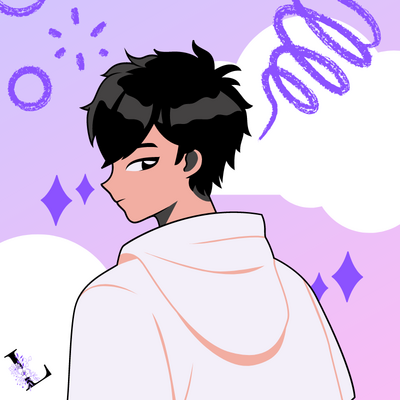I am running Fedora 39 right now and the last time I did a distro upgrade my graphics drivers were a huge PITA. Did your upgrade to 40 went smooth?
Everything went smooth for me though my install is fairly pedestrian.
All good on my device but I use fedora atomic. If it wasn’t good, I could just roll back.
Same, still have Kinoite 39 pinned to be safe (even though I imagine rolling back would cause tons of broken dotfiles), but didnt need that.
Dotfiles are really the issue.
Version control the dot files.
Does Fedora atomic use a rolling release model?
No, it’s image based.
You can always use the testing image if you want
No they just package the exact same versions, but differently. It uses rpm-ostree which is like Git but for operating systems (binaries).
A quick tour through Atomic Fedora
It relies on a main image, which could just be used like that. This is a minimal Fedora install, containing everything thats needed and nothing more.
You would then install apps via Flatpak, Appimage, binaries, Toolbox etc.
Or you can layer RPM packages, and you can install everything as on normal fedora. This will make updates a bit slower but is usually needed for small things like a different shell.
These packages will be kept updated in parallel to the OS. The OS is always 100% what Fedora ships, while the RPMs come from all the repos you can imagine, COPR, rpmfusion etc.
Rpm-ostree pulls down the update and the packages are added to that. But instead of modifying the current OS, it clones it, using the current one, and the differences (updates) that are downloaded.
This new image is now either complete, or gets the wanted RPMs added or removed. The new image is then set as new boot target.
You can use your system how long you want, but when you reboot (and this takes not any longer than a regular reboot) you will boot into the new version.
If something broke, you always have the last system kept. You can increase that number, so only the x-th last image gets automatically deleted. And you can manually
sudo ostree admim pin 0the current system, if you know it works well and you have for example a driver update, or a big system update, and want to be sure you will have this as backup.You can also rebase, which means your system will now mirror a different repo of theirs. For example from Silverblue (GNOME) to Kinoite (KDE). This will change everything so that you now 100% have the packages of the new repo, failsafe.
If it would fail, the update would cancel and you dont get one.
So remember:
- the system by default is 100% the one that Fedora ships. No manual upgrades, no strange “cant reproduce on my system” conflicts, nothing.
- you can still install all RPMs you want
- you can remove RPMs from the system
- you can reset the system again to be 100% upstream
- you can rebase to a different variant. Like Fedora to uBlue, including NVidia drivers and some packages. Or advanced images like Bluefin/Aurora, or Secureblue variants
- updates either work 100% or fail
- you will always have a fallback system (not only a kernel, an entire system) and you can keep as many as you want, forever
So basically: rpm-ostree gives you the needed control to have a stable OS.
But still not everything is “immutable” /managed with rpm-ostree. Your entire
/varis mutable, and/etcand/homeare symlinks from that. This means you can configure and break what you want, which can also be problematic.Note though, that the vanilla
/etcfiles are stored in/usr/etc, so you can restore them. Make sure to exclude crypttab, fstab and a few more!If someone is interested in the atomic concept, i would recommend looking into uBlue. It offers the Fedora atomic spins with a lot of tweaks applied that take the user experience to another level. Everything is just hassle free. Highly recommended! There are separate images with tweaks for gamers and developers.
Thx, that was what I needed to understand Fedora atomic a bit better. Cool concept!
Can you tell us which GPU and driver versions?
I’ve been alright here so far with fedora workstation and silverblue, on both NV21 and Cezanne (amdgpu+mesa, no amdgpu-pro or amdvlk)
nvidia RTX 2070 super. But that was from 38 to 39. I am not on 40 yet
Freecad appimage stopoed working
Luckily the snap version still runs fine
Appreciate the call out for this one, I’ll take a look on my side later.
Appimage it flawed to begin
There is an officially supported Flatpak
I would 100% use that. Snap on Fedora is likely not sandboxed at all, as it relies on Apparmor, and also not really that well maintained as nobody cares.
Yes, thanks. I wrote snap but I actually intended flatpak, D’OH!
Yes. Numerous COPR repos not updated aside, my sddm theme broke and doesn’t detect Qtgraphicaleffects (which is installed). You know what the weirdest part is? There are 2 “dependencies” for the theme: quickcontrols and graphicaleffects, and luckily, quickcontrols was detected properly. I ended up rewriting the theme, and while it works, it is far from where it needs to be. Safe to say, I’m very annoyed.
Edit: I actually did a clean install, as I tried some other distros a few days before F40 released.
So those are either random 3rd party problems (please contact the COPR maintainers, there is Discourse integration) or direct Plasma issues :D
I was also a bit hesitant to already upgrade, as I tried Plasma 6 before and it wasnt perfectly stable, but I actually havent had any issues yet.
3rd party stuff of course
- minimal desktop indicator
- video lockscreen (ironically had a Qt5 bug with seemless playback that may now be fixed)
Some extensions have alternatives like Thermal Monitor, but upgrading was unintuitive. It needed removing and adding back.
I don’t use plasma so definitely not plasma issues. I use SDDM on the Sway Edition and then install Hyprland as my Wayland Compositor of choice.
Audio was a little flaky one time and creating virtual machines with TPM is broken unless you disable selinux
I decided to upgrade, and so far everything is working fine. I had some hiccups after the installation, but a reboot fixed all of them. Thanks for your input :)
I get SELinux warnings related to Proton/Wine (something about “execheap”), but everything still works as it should.
I also had a problem with one of my displays not working until I turned “dim screen after xyz” off (will have to look up what that setting was titled) in KDE. That is a weird issue as it completely crashed the display, even connecting to other computers doesn’t work unless I unplug and replug the power of the display.
Other than that, worked fine so far and I’ve been using it since the beta.
It’s a solid release. The only thing that broke were some plasma widgets not yet available for KDE 6.
I have had zero issues on my desktop. And on my laptop I have way better battery performance. Mind you both are using AMD graphics
Are you using KDE or Gnome?
Just vanilla gnome. I’m pretty basic
Yes, Nvidia drivers broke, I had to remove and reinstall them, ( don’t forget to reboot )
Edit: oh, and also my widgets broke, even ones that are made by KDE…
Also ClearClock is broken because it doesn’t work on KDE 6
I definitely don’t want to deal with that. Last time that happened I had to do a clean install which is just pain imo XD
It was going perfectly smooth (Plasma 6 wayland, amdgpu drivers); though the past week or so I started getting random shell crashes. (It’s very impressive that Qt apps all come back unscathed – but I don’t use too many Qt apps.)
Absolutely. It broke any leftover intention of ever trying Ubuntu again.
I tried Ubuntu recently out of curiously. It was buggy, slow and contained a lot of promotional material. For context, I hadn’t used it since a wipe my machine after they forced snap.
Screen sharing with Discord no longer works, but I think that’s from an update to Flatpak because it was also happening at the end of 39’s lifecycle.
You can mask flatpaks to not update. Likely also rollback
I’m fairly confident that it’s a change in Flatpak itself rather than any one specific Flatpak, since all of my apps now use the same new screen sharing interface. Difference is that it actually works in those apps.
Nope, not at all. Silverblue here (GNOME), and the upgrade went smooth, nvidia drivers and all.
very nice













